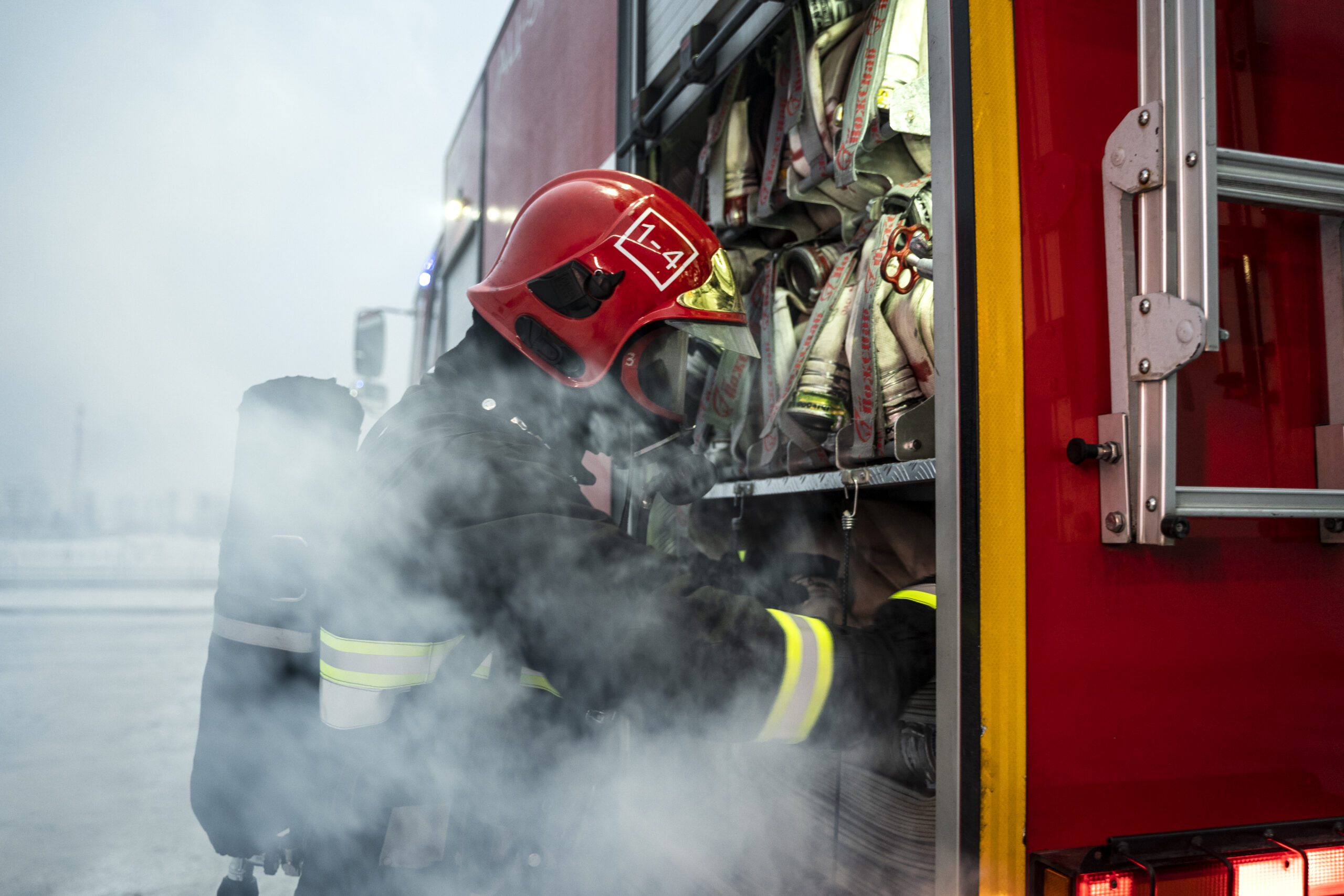Fire Marshal – Protection of fires is a very sensitive issue touching many business buildings as well as homes. Fires are equally a dangerous occurrence in properties, people or casualties along with loss of life. Among the elements of fire protection, a special place is occupied by the figure of the fire marshal.
To function basically as a ‘fire prevention officer’, the fire marshal’s foremost duty is maintaining safe conditions of buildings, workplaces, and social facilities under the noncommissioned fire code.
That is safety officers, fire inspectors, and educators who ensure that untapped fire hazards do not grow into catastrophes.
Here, the author’s objectives are to describe fire marshals’ function in fighting fire risks, their tasks, requirements for them and the need for their services in the present day society.
Who is a Fire Marshal?
A fire marshal is an official of the government or an employee hired by the management of an organization or a particular region to enforce fire regulations.
They can take various positions – in a fire department, as employees of a certain government agency, as well as in private companies. Although it does not deal directly with the Fire Marshal’s position,
It is important to note that the principal goal of the fire marshal is to prevent fires and enforce the measures required to prevent these disasters and determine where risks exist and how these are best managed.
That is why fire marshals are actually multifunctional officers – they are not only governmental employees who enforce fire safety regulation, but also inspectors who check compliance with the rules and lecturers who explain to people what they should do in case of fire.
Its members have significant awareness about installations, legislation, precautions and other emergency procedures to be useful in the safeguard of lives as well as property.

Responsibilities of a Fire Marshal
The fire marshal duties are quite numerous and cut across different areas. In much of the developed world they are being employed with responsibility of testing structures and workplaces for safety against fires. Some of the key duties include:
- Inspecting Fire Safety Equipment: Fire marshals also patrol fire alarms, sprinkler system, fire extinguishers plus emergency doors and exit to ascertain that they are working efficiently.Often they are mandatory, that is, such inspections must be carried out at specific intervals, without which it is impossible to register.
- Fire Risk Assessments: The fire marshal’s work comprises a large portion of fire risk assessment. This ranges from checking the use of flammable products to checking on the correct storage of dangerous products and checking electrical gadgets for earlier signs of tear or Shorts that could cause fire.
- Enforcing Fire Safety Regulations: Fire marshals enforce the fire safety laws and ordinance, and local and state building codes.If they note violations they can arrest people and fine them, or at least shut down those facilities with very huge fire risks.
- Training and Education: A fire marshal can counsel employees, occupants and managers of buildings on fire safety measures that need to be followed.
This may encompass specific exercises such as fire alarms, fire fighters or evacuation guidelines and demonstrations about the usage of extinguishers.
- Emergency Response: During an emergency such as a fire mishap, the fire marshal is in charge of directing people out of the building safely.They work together with fire departments in order to deal with the situation and to avoid further risks.
Preventing Fire Hazards: The Core Mission
Just as central to the duties of a fire marshal is the duty of preventing fire risks. These disasters occur as a result of avoidable circumstances such as electrical spark, improper storage and use of inflammable products and carelessness in Immigration of safety products.
The fire marshal’s job of preventing the risks associated with fire at the workplace before they develop into disastrous events plays a part in preventing them.
Some key ways fire marshals prevent fire hazards include:
- Regular Safety Inspections: Often testing of the fire alarms, sprinkler systems, and the emergency exits means that these systems are functional and can be depended on during the emergency period.
- Risk Assessments: As fire protectors, fire marshals make specific surveys to establish places where fire risks may happen.
This will involve inspection of Kitchens, Electrical panels, heating systems and industrial equipment among others.
- Ensuring Proper Storage of Flammable Materials: Almost every sector of the economy deals with chemical and other materials that react with fire.The fire marshal is also responsible for ensuring that those materials are stored properly with regard to their propensity for igniting.
- Monitoring Electrical Systems: This is true because circuits, which may result from improper wiring or overloading of sockets, can cause fire.Fire officials perform regular checks on electrical systems with a view of coming up with measures that may prevent fire incidents.
Fire Marshal Qualifications and Training
The position of the fire marshal entails the need for formal training together with practical knowledge about fire protection.
The qualifications for fire marshals may vary depending on the country or region, but typically they must complete the following:
- Fire Safety Training: Fire marshals need to receive training for fire safety and prevention regulated by the local law.Such training tends to include training on how to conduct fire risk assessments, how to operate fire safety equipment and what to do in case of an emergency.
- Certification: Fire marshals must be certified in many countries around the globe. The certification programs are most often carried out by fire safety organizations or local fire departments and include theoretical and practical sections.
- Ongoing Education: According to the notes, fire marshals should remain knowledgeable of new fire safety legislation, new technologies and other potential fire threats. This usually entails training and constant retraining for membership to the group or team to be valid and active.
- Communication Skills: Generally, fire marshals deal with the management of the buildings as well as other employees in the premises.The Importance of Good Communication Bad communication or lack of it can be disastrous because it means that people do not understand the safety measures in the event of a fire outbreak.
5. Fire Marshal vs. Fire Warden: Key Differences:
While the terms fire marshal and fire warden can be used interchangeably, there is a major difference in between their functions.
A fire warden, often known as a fire marshal, is an employee tasked with overseeing fire safety in specific areas of an environment.
They were expected to cover functions such as guaranteeing that individuals sally beyond the fire, taking part in drills, and guaranteeing that fire doors are clear.
A fire marshal however has more responsibilities and is usually charged with multiple premises and is likely to carry out a formal fire risk assessment.
While fire wardens play a role of watchmen who only attend to basic fire safety action, fire marshals who are also commonly referred to as fire officers are responsible for a more extensive role of fire protection and safety regulation.
The Importance of Fire Drills and Emergency Preparedness
Fire practice drills are very vital in management of fire disasters, and fire marshals are usually assigned key roles of co-coin these practice exercises.
The objective of a fire drill is, therefore, to make sure that every member in a building knows how to escape a fire safely.
A fire drill assists to acquaint people with the routes they need to use for evacuation, reduce panic and ensure that the evacuation process is well done.
For fire drills, the fire marshal assesses the evacuation and a potential problem is looked for and a solution given. This serves to keep businesses as well as organizations ready to deal with actual emergencies, which may in the process save lives.
How Fire Marshals Collaborate with Fire Departments
Fire marshals are in direct collaboration with the local fire departments to convey the details of findings from inspection and risk analysis.
Fire marshals help the fire department in case of a fire by offering information about the structure of a building, the potential fire risks, and where different fire fighting apparatus are located.
This makes it possible for efficient response to fire outcomes by reducing effects of fire incidents and risks on firefighters and occupants of buildings.
The Role of Fire Marshals in Modern Businesses
In the present world of business protection against fire outbreak has become a very crucial factor. Recent tendency of modern enterprises present specific hazards arising from the utilization of mechanical contrivances, office-structures to have more floors or even just correspondingly large, and intricate manufacturing process.
It is however important to point out that fire marshals play a central role in the management of these risks.
Many companies use the services of fire marshals, or they hire them to guarantee that the provided services correspond to the legislation of a particular territory in terms of fire safety.
As safety and fire officials continue with their scheduled inspections as well as fire risks assessments, fire marshals are able to ensure businesses do not fall foul of the law, save a business on liability and most importantly, keep its personnel and clientele safe from the risk of fire.
Legal and Regulatory Responsibilities
Fire protection rules and code differ from one country to another or from one jurisdiction to another, but the chief duty of a fire marshal is to ensure that all laws are being followed.
They get to know about changes in the fire codes and are supposed to enforce the changes in the businesses or properties that they manage.
Non adherence to the fire precautionary measures leads to stringent actions such as charges attract fines or even get the business closed.
Formerly known as fire predictors, fire marshals work to guarantee that an organization is not only fire compliant but also minimizing fire threats.
Conclusion
There is no doubt fire marshals are of great importance and are called to prevent fire risks and protect people, property and environment.
Because fire marshals provide evaluations, inspections, and fire drills, it is also possible for them to contribute to minimizing fire risks and enhancing fire emergencies.
Regardless of whether they serve in public organizations or are employed by companies and apartment buildings, a fire marshal cannot be overestimated in the preservation of fire safety.
Since fire threats are increasingly noticeable and constantly present in societies, work of fire marshals is extremely valuable.
Through commitment and preventive services, they ensure that buildings, businesses and communities are protected from danger of fire.

